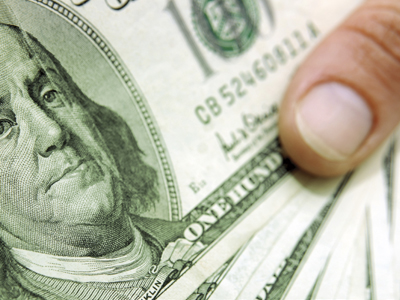How Foreclosure Affects Your Future
Foreclosure is far from the worst thing that could ever happen to you. If your home ends up in foreclosure, chances are there are lots of things you should thank your lucky stars for: your family, your health and your good looks. Foreclosure doesn’t mean you are irresponsible or not deserving of prosperity. It can be the result of an unwise decision, bad timing or unfortunate life events. Nevertheless, foreclosure and its first cousins, missed mortgage payments and short sales, do have credit, legal and tax consequences. Here are the consequences of each:
Missed Payments
- Other than your lender’s late fee, there are no credit or other consequences of a mortgage payment being late until it is 30 days late.
- One 30-day late mortgage payment can drop your FICO credit score from 50 to 100 points.
- If you resume paying mortgage payments after missing one payment (without making a catch-up arrangement with your lender) that one late payment will become a “rolling late,” reported as first 30 days late, then 60 days late, and so on.
- Most mortgage lenders will not make a mortgage or refinance to a borrower with more than one 30-day late mortgage payment on their credit report within the 12 months preceding the application for credit. All lenders will charge you a higher interest rate and impose tougher terms if you have any “mortgage lates” on your credit report.
- Late mortgage payments will be reflected on your credit report for seven years, but the negative impact on your FICO score will decrease as the late payment recedes into the past.
Short Sale
- When you sell your home for less than you owe on it, and your lender writes off the debt, your FICO score will drop between 80 to 100 points.
- It will take approximately 18 months of consistent, on-time credit payments to restore your credit score to a level where you will be able to get a new mortgage with good interest rates and terms.
- Legally, mortgage and lien-holders must agree to extinguish their debts for the short sale to proceed; they cannot sue the homeowner to recover the shortfall.
- Until December 2007, homeowners of properties sold through short sale were charged with taxable income for every dollar of debt forgiven through the short sale. Under the Mortgage Forgiveness Debt Relief Act of 2007, though, mortgage lenders will not charge owners of foreclosed homes with taxable debt relief/income through the end of 2009.
- If you bought your home less than two years ago or purchased your property using tax-deferred capital gains in the course of a 1031 exchange, there might be capital gains tax implications of your short sale. Consult with your CPA in either of these situations.
Foreclosure and Deed in Lieu of Foreclosure
- If your home is lost to foreclosure or you give it back to the lender via a deed in lieu of foreclosure, your credit score will go down by 250 to 280 points.
- It will take about three years of consistent, on-time credit payments to restore your credit score to a level where you will be able to get a new mortgage with good interest rates and terms.
- Even if your lender is entitled to come after you for the difference between the market value of your home at the time of foreclosure and what you owe on the home, they almost never do.
- Tax-wise, mortgage debt relieved through foreclosure used to be potentially taxable as income, depending on the mortgage. Under the Mortgage Forgiveness Debt Relief Act of 2007, mortgage lenders will not charge owners of foreclosed homes with taxable debt relief/income through the end of 2009.
- If you bought your home less than two years ago or purchased your property using tax-deferred capital gains in the course of a 1031 exchange, there might be capital gains tax implications of your short sale. Consult with a CPA if you are considering a short sale in either of these situations.













































